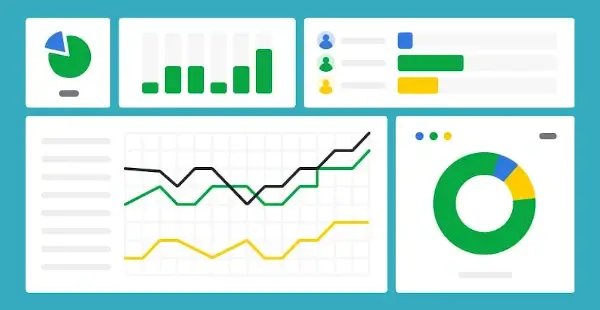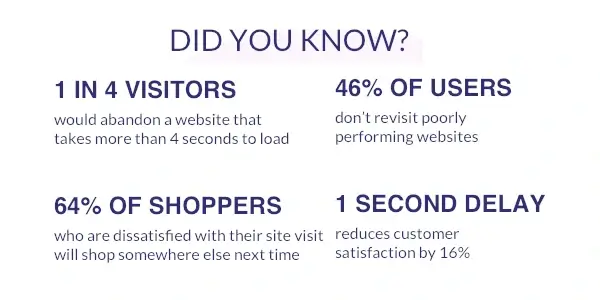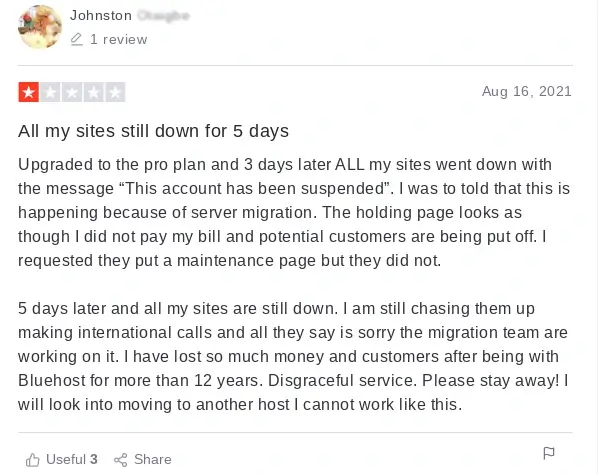
In an age where the internet and eCommerce have such a massive influence on consumers' lives, no business can afford to have an unreliable website. It is as simple as that.
Unstable websites cause downtime, repel customers and result in you losing sales.
That's why website monitoring is so critical. In this article, you'll learn the specific benefits of constant website monitoring and why it's vital to your business' success.
What Is the Purpose of Website Monitoring?
Website monitoring is essential to the success of your organization. You need to know when critical website errors occur so that you can address them before they can cause any more harm. When your website is down, potential customers won't be able to access it.
The result is you lose money.
Effectively monitoring your website leads to a better user experience for your site visitors. When you offer them that good experience, you increase the chances of them going back to your site. That means higher chances for paying customers.
Benefits of Website Monitoring
The keywords to remember when considering your website monitoring should be safety and reliability. A business cannot afford the expenses involved with excessive downtime caused by a Denial of Service attack or other malicious activity by hackers.
In this section, you'll learn the specific benefits you get when you do your website monitoring.
1. Maintain Search Engine Rankings
Google has said page speed is an SEO ranking factor. Fast page speeds, after all, improve the overall user experience. That leads to happy visitors.
That means if you want to protect your search engine ranking (and you want that, trust me), you need to ensure that your page loads quickly. How quickly? Well, if Maile Ohye is to be believed in her Google webmaster video, then "2 seconds is the threshold for e-commerce website acceptability" overall. She went on to say that at Google, "we aim for under a half-second."

That's why website monitoring is so important. When you monitor your website, you can immediately know if your loading speed falls short of Google's expectations and pinpoint the source of the problem. Once you understand why loading time is so slow, you can immediately address the issue.
Maybe you have to limit redirects. Or compress and optimize your content aimed at audience development. Or perhaps you have to switch to a better web host.
Whatever the case may be, thanks to website monitoring, you can adopt a more proactive stance and make the necessary adjustments before Google takes action.
2. Enhance Security
Ecommerce websites are a hot target for cyberattacks. Why wouldn't they be? They are a goldmine of personal and financial data hackers can exploit for personal gain. When that sensitive data is exposed, you can be held liable for damages.
That can be quite a sum of money. In 2014, hackers infiltrated Home Depot checkout pages and stole 56 million customers' email and credit card information. Guess how much the company was forced to pay banks? A whopping $25 million.
When you monitor your website, you can reduce the likelihood of these data breaches. Hackers typically exploit vulnerabilities to infiltrate a website. When you're notified about these vulnerabilities as they occur, you can immediately respond before anyone else finds these and takes advantage.
A vulnerability monitoring service can scan your servers and firewalls for over 60,000 possible security issues. It will then give you recommendations on how to make your system more secure.
3. Safeguard Your Reputation
Your aim should always be to have a website capable of delivering a swift and clean user experience to your users. Customers should enjoy using your website without being frustrated by any technical issues that spoil their browsing.
Why? Simple. A clunky website reflects dreadfully on your organization's image.
Just think about it. If your website is always down every time people access it, they're going to think either one of two things. You're not the hands-on type and are clueless about what happens to your business or don't care about your customers.
Either way, it's a bad thing. People are going to have a bad impression of you. As you know, first impressions always count. Then there's the fact that they can easily spread the bad word about you. According to SEMRush, 26% of people will altogether avoid a brand if their friend or family tells them a negative experience they've had.
When you do website monitoring, though, you can ensure your website is running smoothly every time visitors access it. The result? People will see your brand as one that goes out of its way to provide a great user experience to potential customers. In short, you're the brand that genuinely cares.
4. Prevent Loss of Sales
Ultimately, the goal of your website is to generate sales. But how can it do that if it's always down and people can't access it? In the end, you lose potential customers.
Those potential customers won't just refrain from doing business with you. They are more likely to go to your competitor instead. If they have a good experience with that brand, they are more likely to stick to it. It might be more challenging to get them to switch to you.

You don't just lose money when people can't access your site. Just a one-second delay in page loading time that's acceptable to users can lead to losses. According to Neil Patel, if your e-commerce site makes $100,000 a day, you could lose as much as $2.5 million worth of sales every year for every second of delay in page loading time.
When you do website monitoring, you can be notified about any of these issues that will drive potential customers away. You can then ensure that your website fulfills the very purpose for which it was created in the first place.
5. Improve Your Troubleshooting
Having constant website monitoring of such an important digital asset, such as your company website, for example, gives you peace of mind. It enables you to have a system in place that will constantly monitor your site for problems, creating diagnostic lists for webmasters to examine.
That leads to a complete understanding of where the website is strong and where improvements need to be made. Any issues can also be instantly conveyed to you, by email, text, or phone call, that you have a problem minutes after it has been diagnosed.
Basically, you're prepared for the unexpected, and you design your system to be resilient to anything you can think of. Although you can't possibly come up with strategies for every edge case out there at the moment, you can reduce the time it takes for you to respond accordingly before further harm is done.
Conclusion
Website monitoring should be an integral part of your organizational processes. You do not want to damage your reputation because the user experience on your website is not safe, fast, and efficient. If your website is always down, you'll lose money and customers. You should also find ways to protect your customers and prevent data breaches.
In a world that is constantly changing so rapidly, nobody can afford for their customers to lose their patience and try out the nearest competitor. Don't let that business be yours.
A reliable website monitoring system will identify issues at the earliest stage and inform you instantly to take action immediately.
That result? Your website runs smoothly. Your customers will be more than happy to do business with you.


 Copyright 2000-2025, WebSitePulse. All rights reserved.
Copyright 2000-2025, WebSitePulse. All rights reserved.